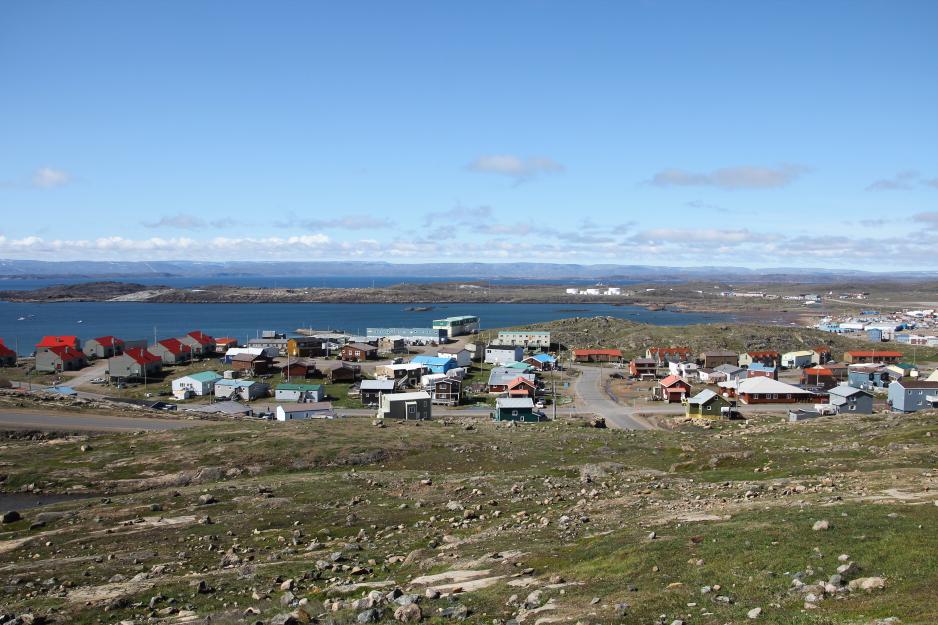Sovereignty is Not the Issue in the Canadian Arctic Says New Report

Iqaluit, is one of the territorial capitals, and was visited during the creation of this report.
A Standing Committee from the Canadian House of Commons has released a new report looking at the coming decades in the Arctic, entitled “Nation-Building at Home, Vigilance Abroad.
A parliamentary committee from the Canadian House of Commons released a report looking at Canada’s policy in the Arctic. This report, entitled, “Nation-Building at Home, Vigilance Beyond: Preparing for the Coming Decades in the Arctic,” comes from the Standing Committee on Foreign Affairs and International Development.
The introduction of the report highlights that many recommendations are, “focused on ensuring that the government is able to assert, now and decades into the future, exclusive and effective control over Canada’s Arctic waters and territory through domain awareness, regulation, stewardship, and enforcement, all of which can be solidified through meaningful partnerships with Canada’s Arctic inhabitants.”
One of the main conclusions from the report was that “sovereignty” is not the main issue of the Canadian Arctic, but in fact it is, “those of security, national defence, stewardship, well-being, and prosperity.”
This non-partisan report was released with 28 recommendations falling within 5 categories including: Circumpolar Diplomacy and Indigenous Rights; Geopolitics; and Meaningful Partnerships with Indigenous Peoples and Northern Communities.
To write the report the committee met with various experts including various levels of government, Indigenous leadership, academic experts and local businesses. This includes, but is not limited to: the Canadian Coast Guard, Cambridge Bay Town Council, Gwich’in Tribal Council, the Government of Nunavut, and Institute for Circumpolar Health Research. They held regional meetings in Iqaluit and Cambridge Bay in Nunavut, as well as Inuvik and Yellowknife in the Northwest Territories
China and Russia
The report focuses on various geopolitical issues, including discussing the place of Russia and China in the Arctic region. The report asserts that, “Russia has become a problem actor in the international system,” yet it goes on to comment that it is unclear if, “Russia views the Arctic in the same way that it does Eastern Europe and the Middle East, and whether such regional distinctions even matter from the perspective of collective defence and deterrence.” Therefore the first recommendation from the report is to “deepen the [North Atlantic Treaty Organization’s] understanding of Russia’s military intentions in the Arctic and to consider the most appropriate and measured response.”
China was also mentioned throughout the report, including a section entitled China’s Arctic Ambitions, and the third recommendation of the report was simply to engage with the Chinese Government to learn more about their interest in this region. Specifically the report noted that in China’s recently released White Paper on the Arctic, China considers the Arctic as a global issue and called China a “Near-Arctic State.”
Duane Smith, the chair of the Inuvialuit Regional Corporation, said in submission to the report, “Despite the distance [from Ottawa] and our (at times questionable) infrastructure, we stand here on the edge of the continent waving our maple leaves at China, at Russia, at the US and at any others who have designs on our Arctic. This is not a rhetoric. We are approached by foreign businesses with foreign ownership that are interested in our resources. We are proud to stand for Canada. We just hope Canada recognizes it and invests in our ability to continue to do so.”
Domestic Policy
The report was clear that the focus is on international issues, yet also acknowledges the importance of domestic pieces in the conversation. The focus was not on social issues in the region, which was explicitly expressed, but does have recommendations on issues such as infrastructure and connectivity.
There were also recommendations around engaging and involving Indigenous peoples and government in decisions moving forward. The report focused on the co-management of the waters in the Canadian North, including several recommendations that focus on Inuit representation in the Coast Guard and co-developing a framework for Canadian Arctic Waters.
There was a further recommendation on building the Canadian coast guard, which is a well documented concern. David Barber, the Canada Research Chair at the University of Manitoba commented in a submission that there is, “an international science project going on in the Arctic and all supported by Russian infrastructure. That's a really bad sign when we can't even get our Canadian infrastructure to collaborate with the Russians on a circumnavigation of Greenland. We don't have enough stability in our icebreaker fleet to be able to do that. I think that's a real problem for us as a nation.”
Outcomes of the Report
One of the main themes was the ongoing believe that there should be more knowledge and engagement in the region. In fact, the final recommendation of the report is that, “the Government of Canada should prepare an annual report to Parliament on the federal role and responsibilities in the Canadian Arctic, the budgetary resources that have been allocated toward relevant policy targets, and the outcomes that have been achieved from that expenditure in partnership with territorial governments and Indigenous organizations.”
Although this report is not policy, the new Arctic Policy was directly referenced in the report. The Committee commented that it hopes these recommendations will help inform the ongoing policy development.
